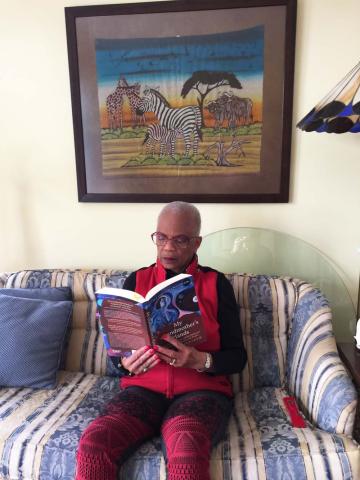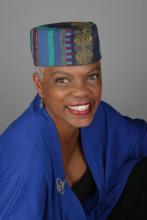Patricia Watson’s review of the book "My Grandmother’s Hands: Racialized Trauma and the Pathway to Mending Our Hearts and Bodies"

My Grandmother’s Hands: Racialized Trauma and the Pathway to Mending Our Hearts and Bodies is by Resmaa Menakem, an American author, artist, and psychotherapist specializing in the effects of trauma on the human body and relationships in Black families and Black society. The book was published by Central Recovery Press in 2017. It is intended for people of all colours.
My Grandmother’s Hands is very impactful and considers what psychologists, psychotherapists, sociologists, and counselors have addressed for years: that racial trauma or race-based traumatic stress impacts society generationally. The impact of stress from generations of racism affects people at the cellular level and can even lead to stress-based genetic disorders. The book emphasizes the importance of understanding where the deep roots of racism stem from. It is impossible to address the topic of racism, systematic discrimination, and oppression without looking at the propensity of the human heart to embrace and practice evil, and how societies, communities, and nations as a whole are negatively scarred because of this evil.
Most people talk about the importance of understanding, intellectually, where racism started; how Black people were traumatized by the white slave masters and how it has continued, for generations, in the treatment of Black, Indigenous, and people of colour. Menakem talks about the importance of understanding that this trauma is in our DNA, and thus it is our bodies we need to focus on to release the trauma. I have never seen any studies or research documented on trauma as a result of people authentically and unequivocally treating one another with genuine love and kindness.
This is a realistic journey, a wake-up call to understand where our body traumas came from and then to be brave enough to travel that road to freedom. It means getting out of our thinking minds and searching the depths of our bodies to unearth the trauma. This is where the journey begins. The end result is being able to live your life authentically without any obstructions from the past or present. And, if something surfaces in the present time, being able to deal with it pro-actively instead of feeling fearful, violated, angry or traumatized.
“Our bodies have a form of knowledge that is different from our cognitive brains. This knowledge is typically experienced as a felt sense of constriction or expansion, pain or ease, energy or numbness. Often this knowledge is stored in our bodies as wordless stories about what is safe and what is dangerous. The body is where we fear, hope, and react; where we constrict and release; and where we reflectively fight, flee, or freeze.”
—Resmaa Menakem
For me, reading the book was a painful and enlightening experience. I’ve known my ancestral history for many years and know about the atrocities that were inflicted upon them. This does not make it right to dehumanize and kill people because of ignorance, hatred and the need for power and control. I am also aware of what has been transpiring around racism for generations, in light of the many movements that have been put in place to eradicate racism and the push back by white supremist to keep Black bodies and people of colour in what they consider to be “their place.”
There are specific exercises throughout the book that deal with racial trauma and help you unearth the deep-seated fear, frustration, and anger associated with racial interactions in society and the need of some to control other people’s lives.
Some of the examples and questions in the exercises that had a deep impact on me dealt with my ancestral roots. I experienced feelings of pain, frustration, anger, and sorrow. The lack of castigation towards the United States, Canada, and many other nations for their blatant, systematic racism, and insensitivity for tangible social justice has led to fleeting and often trifling forms of change. Surface-level laws that fancy mere legislative lip service, without authentically and systematically changing and/or penetrating the hearts of these nations, become unfulfilled legislative promises because they lack the ability to weave love, forgiveness, and healing into the process.
The sobering reality is that racism has not gone away. It has just switched the way it identifies or articulates its poison in society. It used to be unapologetically belligerent and blatant. Now it has shifted into identity politics, militarized police departments, and justice systems that disproportionately target people of color. Its rhetoric is voiced by politically aligned white-supremist groups that use social media, politically backed news agencies, and the insurrection methodology and practices of domestic terrorism to enforce their racist ideology, and to threaten and control governmental institutions at the highest level.
This is not a book for the faint of heart. It will cause you to deal with your personal biases concerning racism.
—Patricia Watson is a member of Bedford United Church, in Bedford, Nova Scotia. She is a Practitioner (Spiritual Coach) and professional singer. She is a member of the Bridgewater Anti-Racism Task Force.

The views contained within these blogs are personal and do not necessarily reflect those of The United Church of Canada.